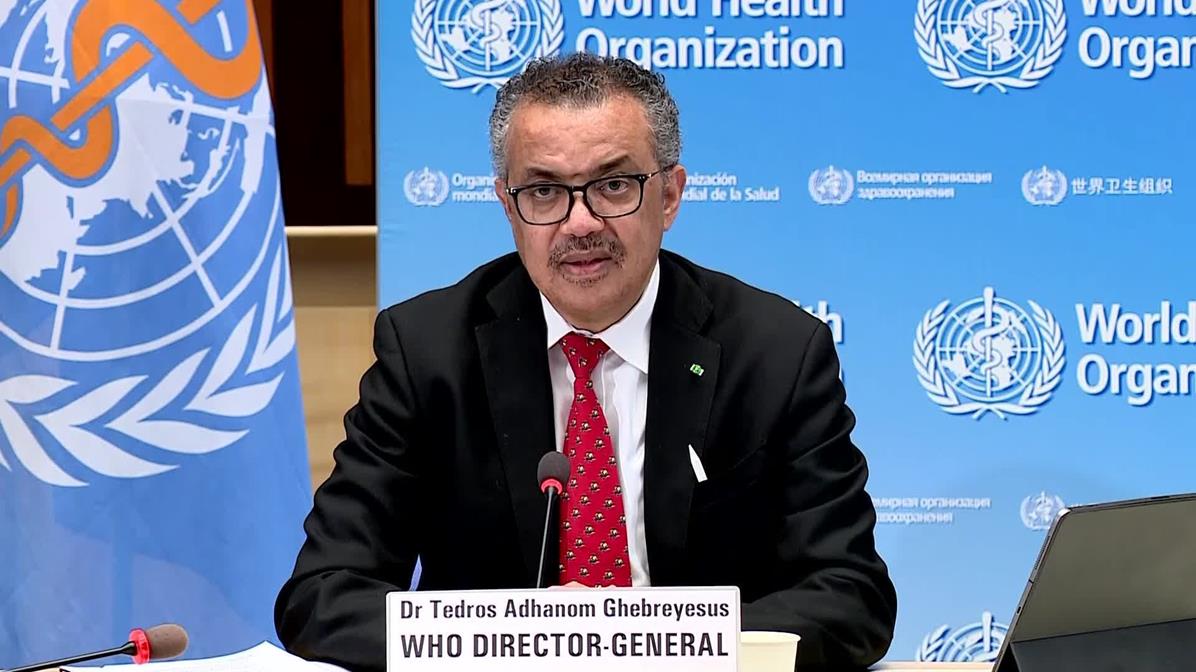WHO Director-General’s opening remarks at the media briefing on COVID-19 – 26 March 2021

- 177 countries and economies have started vaccination. In just one month, COVAX has distributed more than 32 million vaccines to 61 countries.
- There are many countries who invested in COVAX in good faith, but have been left frustrated because of the bilateral deals that have left COVAX short. WHO and our partners are continuing to work around the clock to find ways to increase production and secure doses.
- WHO is also concerned about the potential for criminal groups to exploit the huge global unmet demand for vaccines. We urge all people not to buy vaccines outside government-run vaccination programmes. Any vaccine bought outside these programmes may be substandard or falsified, with the potential to cause serious harm.
————————————————————————————-
Good morning, good afternoon and good evening.
At the beginning of the year, I issued a call for countries to work together to ensure vaccination begins in all countries within the first 100 days of the year.
177 countries and economies have started vaccination. In just one month, COVAX has distributed more than 32 million vaccines to 61 countries. COVAX works.
There are now just 15 days left before the 100th day of the year, and 36 countries that are still waiting for vaccines so they can start vaccinating health workers and older people.
Of those, 16 are scheduled to receive their first doses from COVAX within the next 15 days. That leaves 20 countries who are ready to go and waiting for vaccines.
COVAX is ready to deliver, but we can’t deliver vaccines we don’t have.
As you know, bilateral deals, export bans, vaccine nationalism and vaccine diplomacy have caused distortions in the market, with gross inequities in supply and demand.
Increased demand for vaccines has led to delays in securing tens of millions of doses that COVAX was counting on.
But getting all countries started by day 100 is a solvable problem. COVAX needs 10 million doses immediately as an urgent stop-gap measure so these 20 countries can start vaccinating their health workers and older people within the next two weeks.
So today I’m asking countries with doses of vaccines that have WHO Emergency Use Listing to donate as many doses as they can to help us meet that target.
And I’m asking manufacturers to help ensure these countries can rapidly donate those doses.
There are plenty of countries who can afford to donate doses with little disruption to their own vaccination plans.
The more countries that donate A.S.A.P., the more doses we will have to share with countries who need them desperately.
Sharing doses is a tough political choice, and governments need the support of their people. I’m encouraged by surveys in high-income countries showing widespread support for vaccine equity.
10 million doses is not much, and it’s not nearly enough, but it’s a start.
We will need hundreds of millions more doses in the coming months.
There are many countries who invested in COVAX in good faith, but have been left frustrated because of the bilateral deals that have left COVAX short.
WHO and our partners are continuing to work around the clock to find ways to increase production and secure doses.
There are four more vaccines at different stages in the process of being assessed for WHO Emergency Use Listing, and we hope to approve at least one of them by the end of April.
WHO is also concerned about the potential for criminal groups to exploit the huge global unmet demand for vaccines.
A number of ministries of health, national regulatory authorities and public procurement organizations have received suspicious offers to supply COVID-19 vaccines.
We are also aware of vaccines being diverted and reintroduced into the supply chain, with no guarantee that cold chain has been maintained.
Some falsified products are also being sold as vaccines on the internet, especially on the dark web, and we are aware of other reports of corruption and re-use of empty vaccine vials.
We urge the secure disposal or destruction of used and empty vaccine vials to prevent them from being reused by criminal groups.
And we urge all people not to buy vaccines outside government-run vaccination programmes.
Any vaccine bought outside these programmes may be substandard or falsified, with the potential to cause serious harm.
It’s important to remember that any harm caused by a falsified product does not reflect a safety failure of the genuine vaccine.
WHO regularly issues global medical product alerts on substandard and falsified products, and we will do so when and if necessary for COVID-19 vaccines and therapeutics.
We urge all countries and individuals to pay careful attention to this issue. Any suspicious sale of vaccines should be reported to national authorities, who will report it to WHO. Information flow is essential to map global threats and protect confidence in vaccines.
Finally, I would like to wish Chag Pesach Sameach [hag pesak sa-may-ak] to everyone celebrating the first night of the Passover holiday tomorrow.
Christian, back to you.





